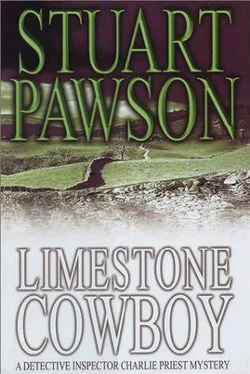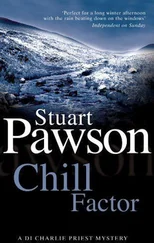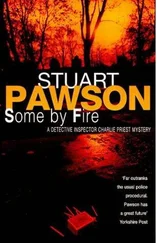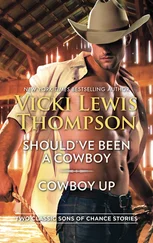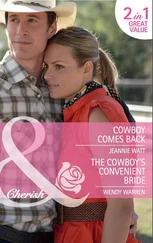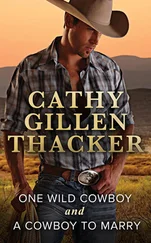Stuart Pawson - Limestone Cowboy
Здесь есть возможность читать онлайн «Stuart Pawson - Limestone Cowboy» весь текст электронной книги совершенно бесплатно (целиком полную версию без сокращений). В некоторых случаях можно слушать аудио, скачать через торрент в формате fb2 и присутствует краткое содержание. Жанр: Полицейский детектив, на английском языке. Описание произведения, (предисловие) а так же отзывы посетителей доступны на портале библиотеки ЛибКат.
- Название:Limestone Cowboy
- Автор:
- Жанр:
- Год:неизвестен
- ISBN:нет данных
- Рейтинг книги:4 / 5. Голосов: 1
-
Избранное:Добавить в избранное
- Отзывы:
-
Ваша оценка:
- 80
- 1
- 2
- 3
- 4
- 5
Limestone Cowboy: краткое содержание, описание и аннотация
Предлагаем к чтению аннотацию, описание, краткое содержание или предисловие (зависит от того, что написал сам автор книги «Limestone Cowboy»). Если вы не нашли необходимую информацию о книге — напишите в комментариях, мы постараемся отыскать её.
Limestone Cowboy — читать онлайн бесплатно полную книгу (весь текст) целиком
Ниже представлен текст книги, разбитый по страницам. Система сохранения места последней прочитанной страницы, позволяет с удобством читать онлайн бесплатно книгу «Limestone Cowboy», без необходимости каждый раз заново искать на чём Вы остановились. Поставьте закладку, и сможете в любой момент перейти на страницу, на которой закончили чтение.
Интервал:
Закладка:
"Perhaps we ought to talk to her GP."
"I'd think you'd find, Inspector, that he's completely taken in by her. He'll say she's a caring mother."
"We see the self-inflicted part often enough," I said, "but not the by proxy bit. Will he go into care?" "Yes. We've notified social services." "You'd better give me the mother's address."
"Why do they have kids if they don't want them?" Dave said as we drove through Heckley towards Gaitskill House, where Mrs Norcup lived. "There's no excuse for it these days. They teach them birth control before they teach them their times tables, hand out free condoms to the juniors, and still every teenage girl you see has at least one youngster following her around."
I looked sideways at him. "It just happens."
"Well it happens too often. Booze and sex, that's what does it, if you ask me."
"Well, yes, sex does play a part," I agreed.
A traffic light fifty yards ahead turned amber and Dave braked. Two cars behind us in the right hand lane accelerated through as it turned to red.
"Look at those two bastards," he cursed. "Did you get the numbers?"
"The second one," I told him, reaching into my pocket for my notebook. "Tell me the make and colour."
The light switched to green and we moved off again. "We could always adopt him," Dave suggested.
"Who?"
"Young Rory."
"What? You and me?"
"No, Dumbo. The police station. Not adopt him, just buy him treats, keep a weather eye on him, wherever he goes. Uncle Police."
"Or Uncle Nick?"
"Something like that. It needn't cost much. The surplus on the coffee money would cover it."
"Uncle Bill?"
"Are you taking the piss?"
"Not at all, Dave. It's a great idea." I shook my head and smiled. There was a temptation to say that he'd probably have another of his own clinging to his legs before much longer, but I resisted.
Gaitskill House was one block in what was known as the Project, on the opposite side of Heckley to the Sylvan Fields estate. The tenants of the Project aspire to live in the Sylvan Fields. It had sounded like a noble idea, back in the Sixties. Housing for everyone, at an affordable price because of new construction methods. Modular design, prefabricated units, pre-stressed concrete. The councillors banded the terms around as if they knew what they meant, and the ugly, pebble-dashed facade of the Project soon scarred the landscape.
The underfloor heating was expensive and unreliable, the joints between the prefabricated sections leaked and you could hear your neighbour clack his false teeth. In the eighties the half-empty flats were condemned and marked down for demolition, but sociological trends were at work, the sanctity of marriage was under threat and there was an upsurge in demand for accommodation for one-parent families. Now the council regarded them as a dumping ground for problem tenants, and the influx of asylum seekers had put a further demand on them.
A researcher had estimated that one parking place for every two flats would be generous, but the single burned-out Sierra standing in front of them showed the error of that calculation. Dave parked well away from it, where his car was highly visible from the upper balconies. Mrs Norcup lived in number 419.
I gazed up at the bleak concrete walls, streaked with rust from the reinforcing bars, and felt as if I were part of Rumania's secret police when Ceausescu was in power. "Third floor," I said, warning my nostrils to brace themselves. "We'll walk."
"Just a tick," Dave said, and strolled over to where four industrial-size dumpsters stood, next to the stairwell. He lifted a lid, looked in, closed the lid and looked in the next one.
"Bugger!" he declared. "They're empty. Looks as if the bin men have just been."
Mrs Norcup answered the door at the fourth knock, probably after doing a high-speed tidy of the flat. Her face was flushed pink but etched with concern as Dave made the introductions.
"Is it about Rory?" she demanded, a hand nervously raised to her face, her hair untidy. "Is he all right? Has something happened to him? I was just about to go back to the hospital…"
"Rory's fine," I assured her with a smile. "We've just left him and he was chatting up the nurses. May we come in and have a word?"
She looked at me, bewildered.
"Rory's fine. Can we come in, please?"
The flat was about what I expected: cheap furniture; untidy and smelling of cooking. I try not to be judgemental, lest others judge me. It was reasonably clean and the carpets didn't stick to your feet as you walked across them, for which I am always grateful. The electric fire was on low and the television on high. A man with a toupee and an orange face was talking about antiques. Dave switched off the telly and settled into the only easy chair that didn't have something on it, giving me a smile that said: "Beat you to it." I found an upright one and invited Mrs Norcup to sit on her own settee.
"The doctor told us that Rory should make a full recovery, Mrs Norcup," I said, "with no after-effects."
"Oh, thank God for that. I've been so worried about the little mite. I wanted to stay with him but I had to tell his daddy what had happened. I hadn't taken his phone number to the hospital."
"Where is Rory's dad?" Dave asked.
"He lives in Sheffield."
"Are you together?"
"No, we split up just before Rory was born. It was amicable. No one else was involved."
"Did you get through to him?"
"No, I missed him. I'll go back to the hospital and try him again tonight. I don't know what I'd do if anything happened to Rory. I just don't know what I'd do." She started to cry and excused herself. Dave pulled a face at me. f walked over to the window and looked down to where the car was parked. It still had its wheels on.
Mrs Norcup came back looking slightly tidier, her face newly washed and her hair tied back, dabbing her nose with a tissue.
"You told the doctor that Rory had eaten some baby food with glass in it," Dave said.
"That's right. Can you believe it? Who'd do something like that to a little baby?"
"What happened?"
"I was feeding him. Do you have any children?"
"No," Dave lied and I shook my head.
"It's a special time, feeding them. It's when you bond. I loved to feed him, watch him watching me. I'd tease him and he'd laugh. He has a lovely laugh. It was peach and banana, Rory's favourite."
"From a tin?"
"Yes," she replied, looking at me as if to say: "What other sort is there?"
"Go on."
"That's it. Suddenly he was crying and blood was pouring out of his mouth. I poked my fingers in, cleared his mouth out, and cut my finger on a piece of glass." She looked at her finger but decided not to offer it as evidence.
"How much had he eaten?" Dave asked.
"About half the tin."
"Have you kept the rest of it?"
"Yes, it's in the fridge."
We moved into the tiny kitchen and she produced the offending item. It was one of those with a pull-tab on the top and she'd saved the lid, too.
"Did you open the tin yourself?" I asked.
"Yes, I suppose so."
"Was there any evidence of it having been tampered with?"
"Not that I noticed. You don't look for things like that, do you? You don't expect anybody to poison your baby's food, do you? What sort of people are there who could do such a thing?"
"There are some strange people about, Mrs Norcup." I spooned some of the gooey mixture out of the tin and rubbed it between my fingers. I found a piece of glass, about four millimetres square and gave it to Dave.
"Where did you buy this?" I asked.
"At Lidl, yesterday. I still have the receipt." She found it immediately, on the windowsill, together with another one. "I bought some shampoo, too, at Wilkinson's."
I took the receipts that she offered me, looked at them and handed them to Dave. The sum of her shopping trip was one tin of baby food and one bottle of shampoo. Hardly worth the journey into town.
Читать дальшеИнтервал:
Закладка:
Похожие книги на «Limestone Cowboy»
Представляем Вашему вниманию похожие книги на «Limestone Cowboy» списком для выбора. Мы отобрали схожую по названию и смыслу литературу в надежде предоставить читателям больше вариантов отыскать новые, интересные, ещё непрочитанные произведения.
Обсуждение, отзывы о книге «Limestone Cowboy» и просто собственные мнения читателей. Оставьте ваши комментарии, напишите, что Вы думаете о произведении, его смысле или главных героях. Укажите что конкретно понравилось, а что нет, и почему Вы так считаете.
